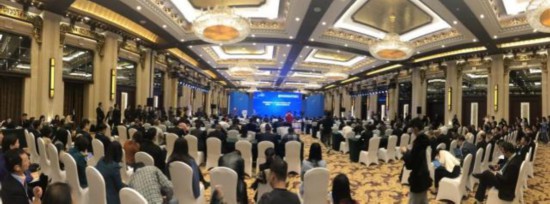Qian Wei is the chairwoman of CCTV International Network Corporation, a new media subsidiary of China Media Group.
She says news organizations and companies are heating up race in video products.
"Video productions have become the focal point of competition in the media industry. The visualization of news transmission shows unlimited potential for growth in the future. Now almost all news organizations are turning to videos."
The China Broadcasting Network Corporation has obtained a 5G license which will allow various players in the media sector to offer commercial services on the next generation of cellular network.
With low latency and ultra-fast download speed, visualized news products such as short videos are expected to get even more popular with the arrival of 5G.
With the roll-out of 5G network, it's reported that 90 percent of data flow will come from video content.
Qian Wei says she's been working on building an AI editorial department which is expected to change the way editors work in the near future and offer advanced services for audiences.
"We have to stay grounded and work hard to catch up with the trend of the technological breakthroughs in the news industry. We are working on reproducing a substantial amount of video sources of the China Media Group which requires arduous work. We also make use of the big data platform of the company and build the AI news platform into an innovation center that incorporates a wide range of forms of media. We are going all out to seize the opportunities arise from a new era."

Paul Shanley, the Global Director of Video Products at The Associated Press, says traditional media giants are faced with tough challenges to fight for attention and time from the audience as many new platforms are popping up like Tictok and Vlog.
Shanley says short video products will dominate the future news industry.
As the roll-out of 5G networks and AI technology gains momentum, Shanlely suggests traditional media team up with tech firms to adapt to the changes in the consumption of news content.
"It's a challenge for the news industry and I don't see any other way of meeting that challenge without working closely with tech companies or technology departments. So we'd like to see more partnerships between editorial news organizations and tech companies. Certainly, we found the news industry is in many ways under challenges and news companies are asked to do more with less. And the only real way that we can achieve that is through technology collaboration."
CEO of tech start-up APUS Group, Li Tao says integrating traditional companies with the tech sector helps to boost their appeal to a larger audience, especially the younger generation.
"The news companies are faced with global users from a wide range of cultural backgrounds. For example, in countries like Vietnam and India, the average age of internet users is around 25 years old. The traditional way of news distribution with heavy reliance on words and photos can hardly gain recognition from the young audience."
With the arrival of 5G, Li adds, more technologies like blockchain will not only help news companies to offer better services to consumers, but will also enhance their capabilities to fight the fake news phenomenon.
For the Beijing Hour, this is Guo Yan in Wuzhen.












